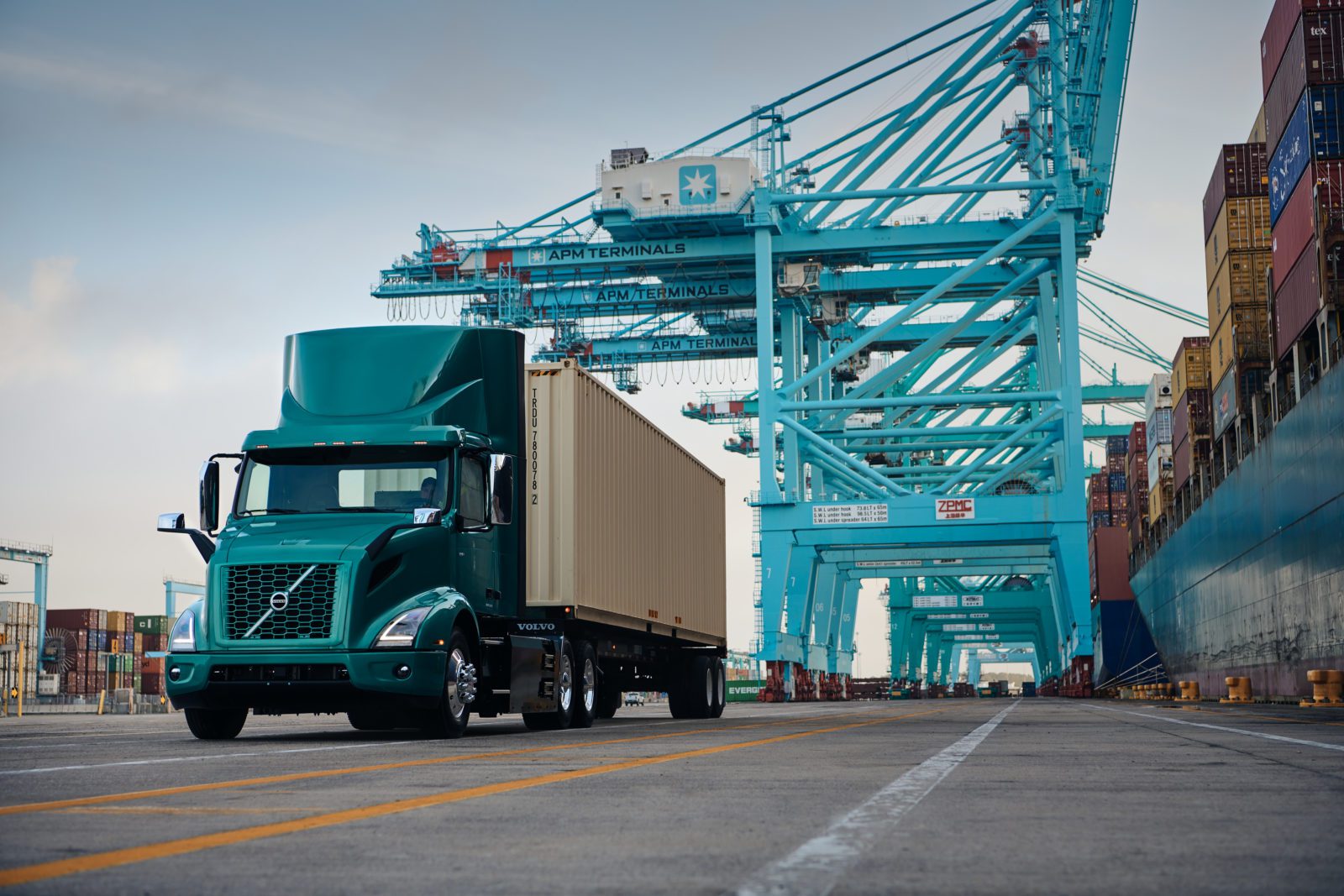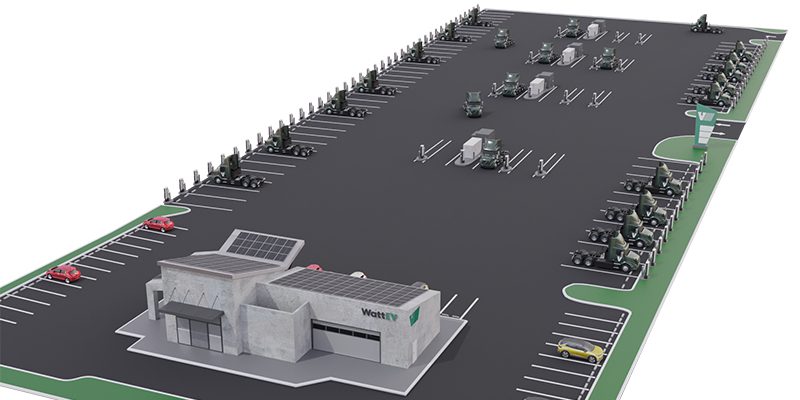Operating a fleet of heavy-duty diesel trucks comes with exponentially greater challenges year after year, including tightening emission regulations, pressure from customers to improve corporate and supply chain sustainability, and fluctuating diesel fuel prices that impact profit margins and make long-term forecasting difficult. Electrifying your truck fleet offers effective solutions to these problems, but numerous economic and operational challenges could slow market uptake, including high upfront electric vehicle and infrastructure costs, limited public funding and incentives, unknown vehicle resale value, and shorter vehicle range coupled with a lack of public charging infrastructure.
WattEV is developing an innovative solution to eliminate these entry barriers for shippers and carriers wanting to transition to battery-electric trucks.
A new start-up based in Southern California, WattEV, is developing an innovative solution to eliminate these entry barriers for shippers and carriers wanting to transition to battery-electric trucks. WattEV’s Electric Truck-as-a-Service (TaaS) model provides access to battery-electric trucks at a per-mile or per-route rate nearly on par with diesel, inclusive of vehicles, costs of charging infrastructure, installation, and maintenance. This model, designed and led by industry experts, can help reduce the upfront costs of vehicle electrification for carriers by facilitating deployment using the trucks as a service rather than as capital assets.
“With the purchase of our first battery-electric Class 8 VNR Electrics from Volvo Trucks, we are excited to launch WattEV’s Truck-as-a-Service model and begin making progress toward our goal of revolutionizing the way the nation transports freight,” said Salim Youssefzadeh, CEO, WattEV. “We are grateful to partner with an OEM that shares the same commitment to freight electrification, as well as an advisory board made up of transportation logistics leaders, charging infrastructure and software experts, and policy and finance specialists.”

Image: VTNA
WattEV has ordered 50 Class 8 Volvo VNR Electric trucks to launch its unique TaaS model in California. Over the next several months, the Volvo VNR Electric trucks, which have a range of up to 275 miles, will begin operating on routes between California’s San Joaquin Valley, Inland Empire, and the Ports of Long Beach and Los Angeles. WattEV plans to scale its TaaS fleet to 12,000 battery-electric trucks by 2030.
Shippers, carriers, and 3PLs can utilize WattEV’s TaaS model for a variety of freight logistics including import and export drayage, domestic intermodal drayage, and regional services. The TaaS model is ideally suited for routes up to 250 miles from origin with up to 39,000 pounds of cargo.
“Volvo Trucks applauds WattEV’s unique approach to accelerating fleet electrification through its TaaS model, which aims to remove potential barriers to adoption so that fleets of all sizes can get access to electric Class 8 trucks and perform local and regional delivery with zero-tailpipe emissions,” said Peter Voorhoeve, president of Volvo Trucks North America. “This type of innovative thinking is necessary to transform how the industry transports freight, and we look forward to collaborating with WattEV as they scale their TaaS fleet across California and the nation.”
“This type of innovative thinking is necessary to transform how the industry transports freight, and we look forward to collaborating with WattEV as they scale their TaaS fleet across California and the nation.”
WattEV is building a public network of heavy-duty battery-electric truck charging depots to support its TaaS model and to service major transportation corridors, connecting shipping ports with freight distribution centers and warehouse locations. WattEV’s first public truck charging depots will be in Bakersfield, San Bernardino, and near the Port of Long Beach, and will feature 360 kW CCS chargers. The company’s development pipeline also includes multiple locations on Interstate 5 highway with the goal of creating a zero-emission corridor from the ports in the south to Sacramento in the north.
As WattEV’s public charging network expands nationwide, the company plans to scale its depots to provide 1.2 MW charging capability for ultra-fast charging concurrent with availability of trucks from OEMs that support the upcoming MCS standard. The public charging depots along the highways will utilize onsite solar fields and energy storage, providing customers access to renewable energy at average costs lower than grid-connected public charging stations.
To learn more about WattEV and to contact their team for a complimentary quote, please visit WattEV’s website and WattEV at ACT Expo in booth #1813.


